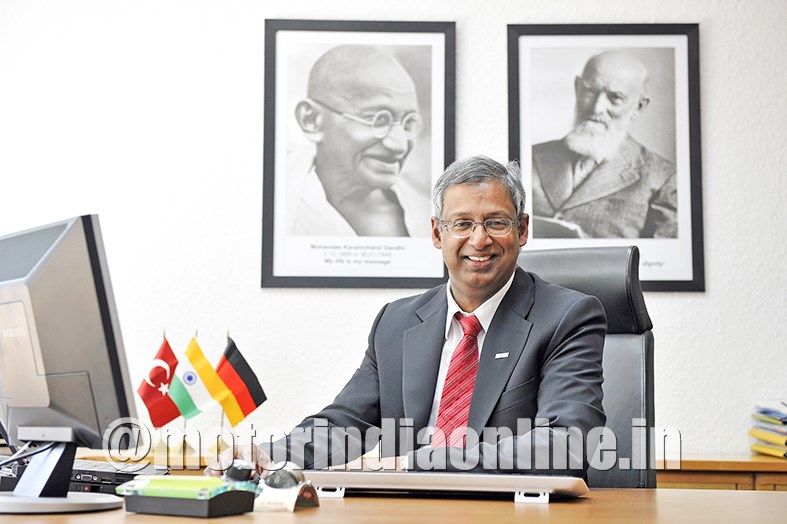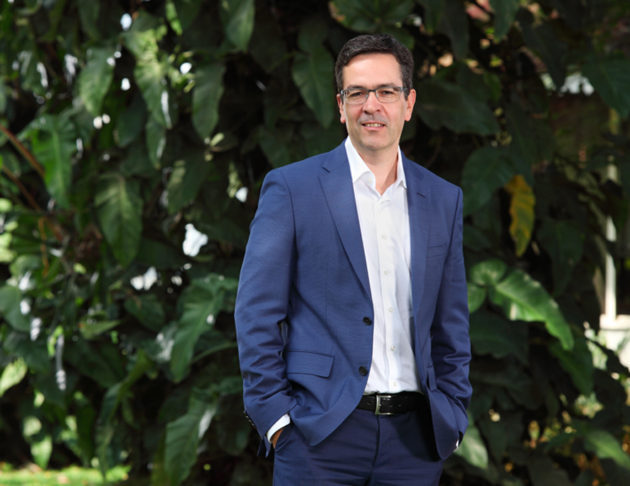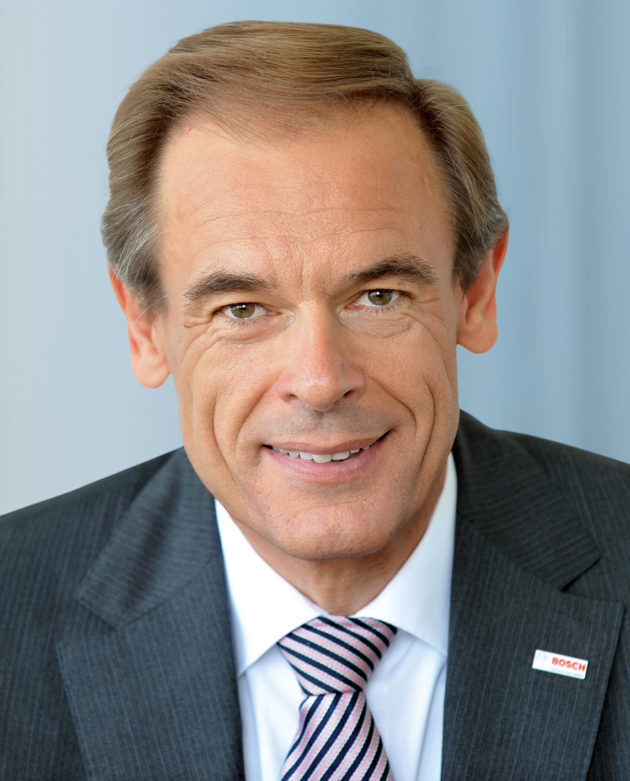During FY 2019-20, Bosch has made a provision of Rs. 717 crores towards various restructuring, reskilling and redeployment initiatives. These provisions are in line with the company’s transformation initiatives and have been made to capitalize on opportunities emerging in electromobility and other mobility-related projects
Bosch, a leading supplier of technology and services, stated in its annual press conference that it has reiterated its commitment to technological innovations for business developments in 2020-21. “We have taken multiple safety measures for our associates and are making every effort to ensure sustained and stable supplies to support our customers. Following directives from the Centre and State, we are gradually ramping up production in the country,” said an optimistic Soumitra Bhattacharya, Managing Director, Bosch Ltd., addressing the media at its company’s virtual press conference, ahead of easing out the lockdown across the country.

Bosch ended its fiscal year 2019-20 with a total revenue from operations of Rs. 9,842 crores (Euro 1.25 billion), thus registering a decline of 18.6% compared to the previous fiscal year. Profit before tax (PBT) from continuing operations and before exceptional items declined by 29.9% to Rs. 1,636 crores. PBT in FY 2019-20 thus amounted to 16.6% of the total revenue from operations. “The financial figures reported are in line with the downward trend in the automotive industry which has been going through a challenging phase for some time and is now having to deal with the impact of the corona virus,” Bhattacharya said.
“More than ever, it is now important to stay connected with associates and customers and assess ground-level activities. We have to prepare ourselves for a prolonged slowdown in the market in FY 2020-21,” he added. The company’s mobility business sector declined by 24.4% in 2019-20 due to slowdown in the automotive segment. Domestic sales declined by 25.9% and export sales declined by 6.1%. Within the mobility segment, the powertrain solutions business registered a decline of 30.2% owing to a low performing automotive market. Business beyond mobility solutions has recorded a decline of 14.4%.

During FY 2019-20, Bosch has made a provision of Rs. 717 crores towards various restructuring, reskilling and redeployment initiatives. These provisions are in line with the company’s transformation initiatives and have been made to capitalize on opportunities emerging in electromobility and other mobility-related projects. The PBT after exceptional items stood at Rs. 920 crores or 9.3% of the total revenue from operations. Profit after tax (PAT) from continuing operations stood at Rs. 730 crores before exceptional tax items.
During the quarter, Bosch has made an incremental provision of Rs. 297 crores towards various restructuring, reskilling and transformational projects. The PAT from continuing operations before and after exceptional items stood at 13.9% and 3.6% of the total revenue from operations respectively. “Bosch is adapting to the current market developments with measures to manage resources and enhance operational efficiencies. Various restructuring and transformation projects are under implementation to secure future profitability and growth. We will continue our investments in future business, namely, electrification, mobility services and revamping of our Adugodi campus as a technology hub,” Bhattacharya said.
Outlook for FY 2020-21
Speaking about the outlook for the upcoming fiscal year, Bhattacharya commented: “As a leading automotive technology company with 80% of our revenues driven through mobility business, we have been affected severely. We welcome the Prime Minister’s announcement of an economic package of Rs. 20 lakh crores and hope to see some light towards economic growth. We are still waiting to receive further guidance on industry-specific stimulus package that will support the automotive sector.” Bosch has a long-term strategy to shape the market in key technologies with innovative products and solutions. It thus continues its stance to be a technology agnostic partner to customers, government and stakeholders at large.
Since 2017, Bosch has executed 79 BS VI projects in passenger cars and commercial vehicles segments with major OEMs. Amidst the crisis, Bosch in India will continue with critical investments in competence development as well as for solutions designed and developed in India and for India. For all Bosch businesses beyond mobility solutions, the company has a two-pronged approach. On the one hand, Bosch continues to bring in ‘fit for market’ products and solutions while on the other, the company will increase its ‘go to market’ footprint using both offline and digital platforms.

Combating the Crisis
In view of the corona virus pandemic, Bosch anticipates considerable challenges for the global economy in the current business year. To achieve at least a balanced result, it will take a supreme effort, the board of management of Bosch Group announced during a press conference in Germany. Despite the challenges of the current situation, Bosch is maintaining its long-term strategic course: the supplier of technology and services is continuing with its systematic pursuit of ambitious climate goals and is developing activities required to support expansion of sustainable mobility. “Although other issues are currently in the spotlight, we must not lose sight of the future of our planet,” said Bosch CEO Volkmar Denner.
Bosch will reach its global climate action targets for 2020 and make all its 400 locations worldwide climate-neutral. In addition, Bosch has set itself the goal to make upstream and downstream activities along the value chain as climate-neutral as possible – by 2030, the associated emissions are expected to fall by 15%. Moreover, the company plans to pool experience from more than 1,000 energy-efficiency projects of its own in a new advisory company called Bosch Climate Solutions. As climate action is accelerating structural change in many sectors, hydrogen is becoming increasingly important, both in the automotive industry and in building technology.
Bosch is therefore working with partners on mobile and stationary fuel cells. When it comes to mobility, what is important, according to Denner, is a broad technology offensive that not only sets out a battery-electric path to sustainable mobility, but also takes into consideration efficient combustion engines and especially renewable synthetic fuels and fuel cells. Wherever possible, Bosch wants to contribute to efforts to contain the pandemic, for instance through the newly developed rapid Covid test and the Vivalytic analysis device. Bosch intends to produce more than 1 million rapid tests in 2020, and to increase this to 3 million next year. Furthermore, Bosch produces facemasks and disinfectants in some regions, mainly used for the protection of its associates.